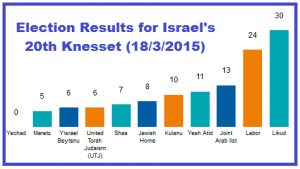
Although having been written off by many Israeli commentators 6 months ago, a recent TV2 poll showed that, perhaps unsurprisingly, the Yisrael Beytenu leader Avigdor Liberman is the best man to end current wave of Palestinian terrorist attacks.
By Ari Soffer
When Yisrael Beytenu party leader Avigdor Liberman declared last April that he would not be joining Prime Minister Binyamin Netanyahu’s coalition, many commentators saw it as the final, vengeful act of a political has-been.
“A political suicide bombing” was how some in the Israeli press described it, noting how in the process of ostensibly making his much-reduced party irrelevant, Liberman had also left his political nemesis Netanyahu in the incredibly uncomfortable position of being held hostage by a mere 1-MK majority, in a government with more than one source of political dysfunction.
At the time, I argued that such analyses significantly underestimated one of the shrewdest figures in Israeli politics, and that Liberman was in fact making a calculated, albeit highly risky political gambit.
Now, just a few short months later, that gamble appears to be paying off.
A recent Channel Two poll showed that, perhaps unsurprisingly, the ongoing wave of Arab terrorism has seriously eroded Netanyahu’s popularity ratings, with 78% of respondents saying they were dissatisfied with his handling of the security situation.
More tellingly, when asked who they felt would be the most capable leader to steer Israel out of the current crisis, the answer was not Labor head and Leader of the Opposition Yitzhak Herzog, or Jewish Home leader Naftali Bennett, but Liberman, who came out on top with 22%. Bennett came second by a full 5%, and Netanyahu trailed at 15% in third place.
The question is why. How did the leader of a party which saw its number of seats plummet to just six (and even that was a relief to many within the party at the time), and which is currently drowned out in an overwhelmingly left-wing opposition, position himself as “the most capable leader” in the eyes of so many Israelis at a time of crisis?
The answer, as Liberman likely foresaw at the time, was by doing almost nothing.
Because while being leader of a tiny, right-wing party in an otherwise left-wing opposition is far from ideal for a man still determined to be prime minister, it does have its advantages. Free of the constraints of coalition discipline (absurdly lax as they may appear at times in Israel), he is able to position himself as the only alternative to a “weak” government struggling to control the latest outbreak of deadly terrorism.
Or, as I put it at the time, by merely sitting in the opposition and firing barbs at the government for not being tough enough when the next crisis inevitably appeared, “Liberman would emerge as the champion of the Right, masterfully turning the tables on his political rivals – no longer squeezed between Netanyahu and Bennett but openly challenging both at the same time from the safety of the opposition.”
And hard as Bennett and his fellow Jewish Home MKs may try to do the same, their criticism of government policy understandably sounds more than a little hollow given that they are, in fact, members of that very same government. It may be true that they are only a “minor partner,” and that Jewish Home does genuinely favor a far tougher position (which Justice Minister Ayelet Shaked has actually been fairly successful in promoting) – but that matters not to a frustrated Israeli public demanding decisive action.
It is a testament to the public’s short memory (again, something the wily Liberman would have patiently banked on from the very start) that Liberman’s brief stint as the “responsible, moderate” Right is suddenly forgotten, and, conversely, that few will have noticed how his election pledge to push through a bill mandating the death penalty for terrorists has all but fizzled out. Instead, Liberman the “hawk” has returned with a vengeance, taking swipe after swipe at the government for not showing enough leadership and even openly, though still cautiously, touting his party as a stronger alternative.
Of course, these are still very early days. Netanyahu has ridden out worse storms than this and there are no signs that the government will fall – on the contrary, that is the last thing the Israeli public want or need right now. It’s also worth noting that Liberman’s other rivals, the Jewish Home, have gained public trust as well for their conduct in government so far, including their role in spearheading tough counter-terrorism measures.
Neither do his recent claims that Yisrael Beytenu could gain as many as 20 seats if elections were held today sound at all realistic.
But if the Arab terrorist groups and inciters fanning the flames of violence are doing so in the deluded hope that Israelis will finally break under the pressure and concede more – or even somehow resign themselves to defeat – they will be sorely disappointed.
Instead, by once again grossly underestimating the stamina and determination of ordinary Israelis, and by totally misreading the Israeli political environment, the Palestinians may have just reinvented the career of one of the “right-wing extremists” they most hate and fear in equal measure.
View original Arutz Sheva publication at:
http://www.israelnationalnews.com/News/News.aspx/201759#.VhuH_LShDFI






 Israeli New Shekel Exchange Rate
Israeli New Shekel Exchange Rate